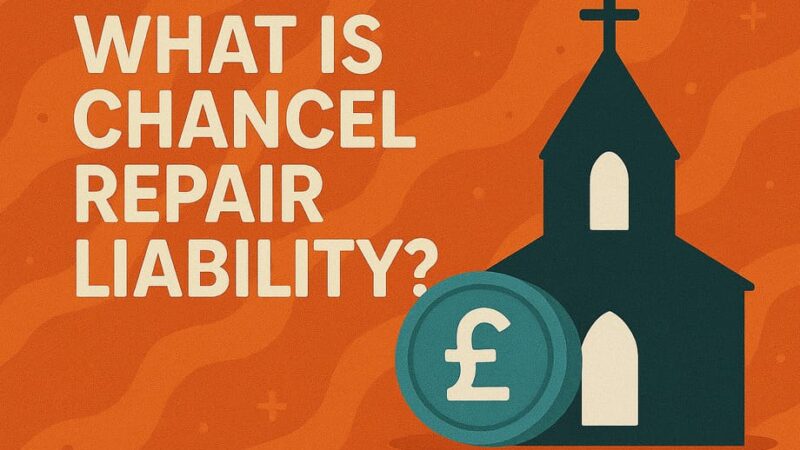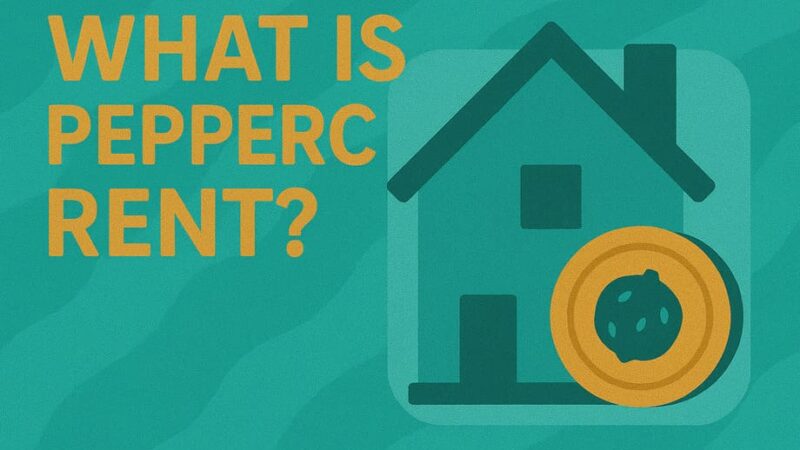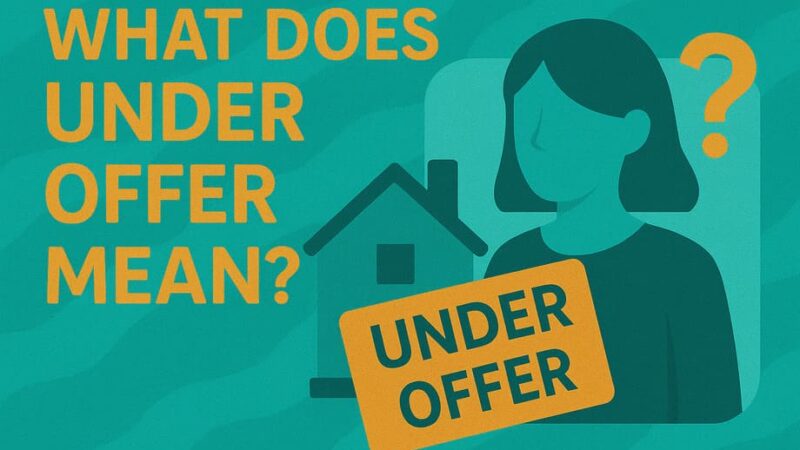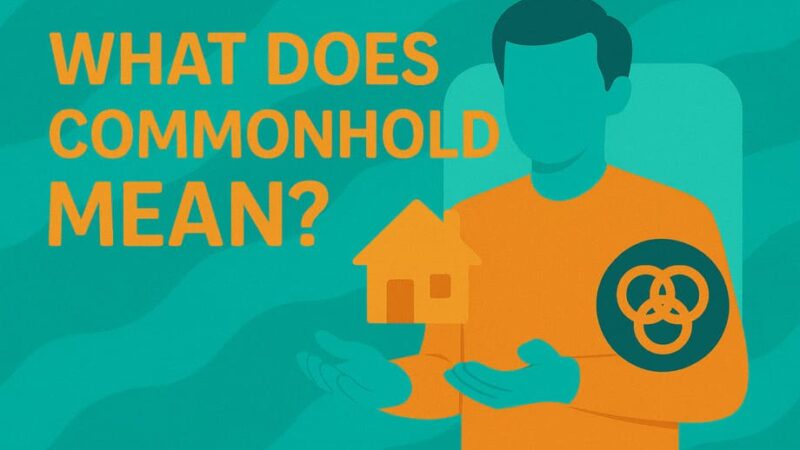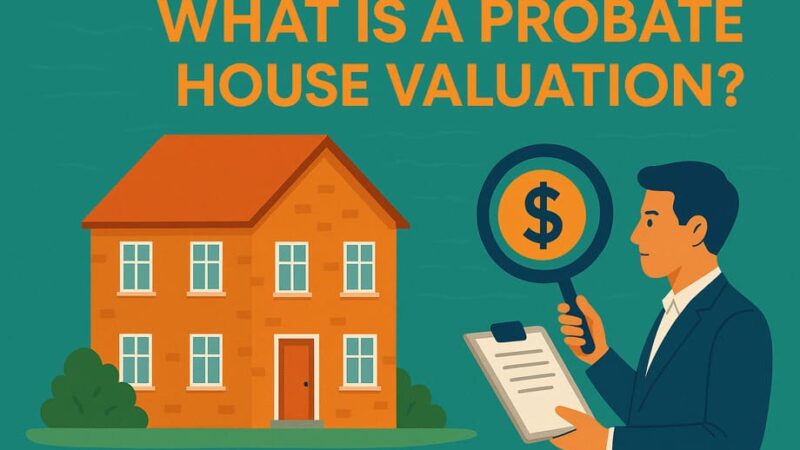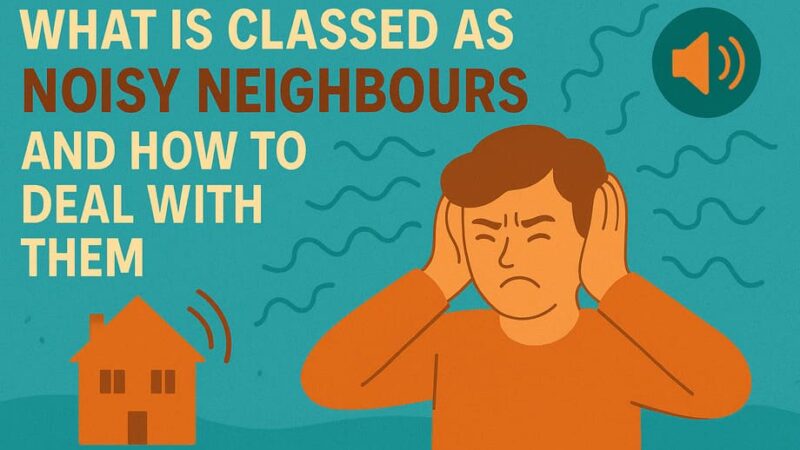Offers Over Explained – What It Means and How Much to Offer
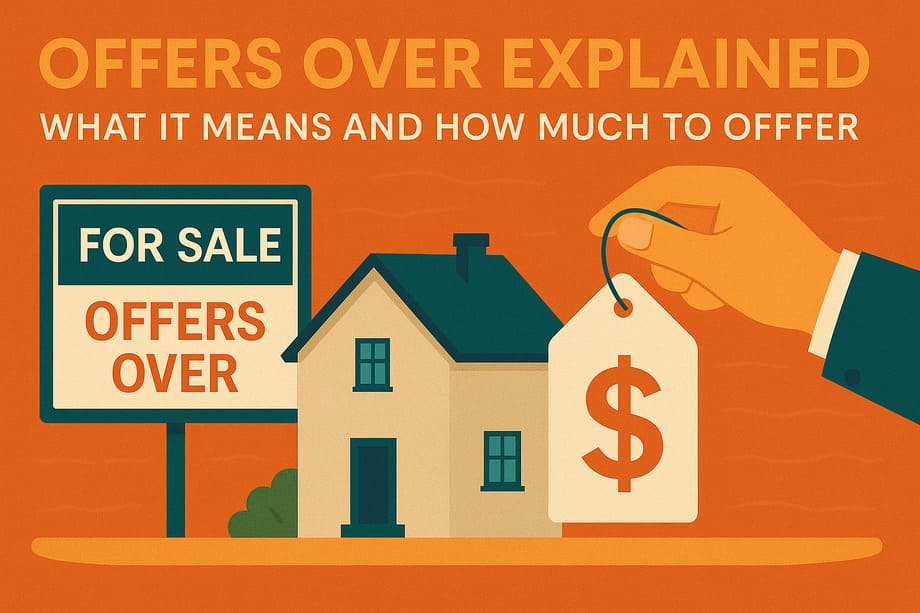
If you’re buying a house and have come across listings marked “offers over,” you might be wondering what this actually means and how much you should offer. This guide explains the offers over meaning, how to approach these types of listings, and what to consider when deciding how much to bid.
What Does Offers Over Mean?
The phrase “offers over” (also known as “offers in excess of” or OIEO) is a pricing strategy used by sellers and estate agents to indicate that the property will not be sold for the price listed, but for something above it. It sets a minimum price expectation, signalling that the seller will only consider and respond to offers that exceed the advertised price.
When you see “offers over £300,000,” it typically means the seller is expecting buyers to submit bids starting at that figure and ideally above it. This is different from a standard “guide price” or “asking price,” which are more flexible and open to negotiation in both directions.
For example, a property listed on Rightmove with an asking price of £425,000 (OIEO) suggests that the estate agent will only respond to offers of £426,000 or above.
Offers Over vs Other Pricing Strategies
Understanding how offers over differs from other pricing terms helps you navigate property listings more effectively:
Offers Over (OIEO): The seller will only consider offers above the stated price. It acts as a minimum threshold.
Fixed Price: The seller wants exactly the stated price and will typically accept the first offer at that figure, usually on a “first past the post” basis.
Offers In the Region Of (OIRO): The seller is open to negotiating both above and below the stated price, giving more flexibility.
Guide Price: A flexible estimate that’s open to negotiation. Buyers might offer less initially and negotiate from there.
Price on Application (POA): Usually used for expensive or unique properties where the seller prefers to discuss the price with serious buyers only.
In Scotland, “offers over” is standard practice and is typically set £5,000 to £25,000 below the Home Report valuation to attract maximum interest and encourage competitive bidding.
Why Do Sellers Use Offers Over?
There are several strategic reasons why a seller or their estate agent might choose to market a property as “offers over”:
Setting a Minimum Acceptable Price
If the seller has calculated exactly what they need to make from the sale—to cover estate agent fees, legal costs, and their onward purchase, they’ll have a minimum figure in mind. Using offers over removes pressure to negotiate below this threshold and filters out buyers who can’t afford to meet this price.
Creating Competition and Driving Up Price
By setting an attractive offers over price (sometimes below market value), sellers aim to generate strong interest and multiple offers. This competition between buyers can drive the final sale price well above the initial figure, much like an auction.
In competitive markets with high demand and low supply, this strategy often works in the seller’s favour, especially for family homes in popular school catchment areas or desirable locations.
Dealing with Difficult Valuations
When a property is hard to value perhaps because it hasn’t been sold for decades, there aren’t similar properties nearby, or it has unique features, offers over allows the market to establish the true value through competitive bidding.
Compromising on Valuation Disagreements
If an estate agent values a property lower than the seller believes it’s worth, they can compromise by listing at the agent’s suggested price but with “offers over” to show they won’t accept anything lower.
How Much Should You Offer?
This is the tricky part. When buying a home listed as offers over, how do you know what’s reasonable? There’s no hard and fast rule, but several factors should guide your decision:
Research Recent Sales
Look at what similar properties in the same area have recently sold for (not just asking prices—actual sale prices). This gives you a realistic picture of what the seller might expect and what the market will support.
Use tools like Zoopla and Rightmove to check the “sold prices” data for comparable homes.
Consider Market Conditions
In a fast-paced, competitive market with low supply and high demand, you may need to go 5-10% (or even more) above the listed price to be competitive.
In a slower market where properties stay listed longer, you have more negotiating power and might offer closer to the offers over price or even slightly below.
Check the Home Report (Scotland)
In Scotland, the Home Report includes a professional surveyor’s valuation. This is usually your starting point. In competitive situations, buyers typically pay over the Home Report value, sometimes 10-15% or more above the “offers over” figure.
Factor in any repairs indicated in the Home Report when deciding how much to offer.
Consider Your Budget and Ceiling
Be realistic about what you can afford. Add up your available resources (deposit plus mortgage) to understand your ceiling.
Ask yourself: if someone else gets the property for £5,000 more, will I regret not offering that extra amount? If yes, and you can afford it, consider increasing your offer.
Assess How Long It’s Been Listed
If a property has been on the market for a while, especially if it’s been reduced, you have more negotiating power. Some buyers successfully offer at or even below the “offers over” price in these situations.
Properties that sell quickly likely have strong competition, so you’ll need to be more competitive with your offer.
Get Expert Guidance
A good estate agent or solicitor who knows the local market can advise you on what similar homes are selling for and how competitive the property really is. In Scotland, solicitors often help clients decide on offers using historical data and market knowledge.
How Much Over Should You Realistically Offer?
As a general rule of thumb, buyers typically offer anywhere from 5% to 15% over the asking price in competitive markets, depending on local demand and property type.
However, this can vary dramatically:
- In hot markets: Some properties receive offers 20% or more above the offers over price
- For properties on the market a while: Offers at or even below the offers over price may be accepted
- In Scotland’s closing date system: Offers are often 10-15% above the “offers over” figure, sometimes more
The answer ultimately comes down to what you can afford and how much you want the property. Make an offer you’re comfortable with and won’t regret.
The Scottish Closing Date System
In Scotland, the offers over system works differently than in England and Wales. When there’s competition for a property, the selling agent sets a “closing date”—a deadline by which all interested buyers must submit their best and final offer.
This creates a “blind bidding” situation where:
- You don’t know what other buyers are offering
- You get only one chance to submit your best offer
- The highest offer typically (but not always) wins
Buyers must carefully consider:
- The Home Report valuation
- What they can afford
- Whether they have a property to sell
- How much they really want this specific house
The advice from Scottish solicitors is clear: offer as much as you can comfortably afford if you really want the property.
Can You Offer Below Offers Over?
Technically, yes, you can make any offer you want. However, in practice:
It’s unlikely to be accepted unless:
- The property has been on the market for a considerable time
- There’s been a price reduction already
- The offers over price is unrealistic compared to similar local properties
- The seller needs to move quickly
- You can offer something else valuable (chain-free status, cash purchase, flexible completion)
If you want to offer below the offers over price, explain why your offer represents good value. Mention factors like:
- Being a cash buyer with no chain
- Flexibility on completion dates
- Quick decision-making ability
- Issues identified in surveys
Some buyers have successfully offered £20,000-£25,000 below offers over prices on properties that had been listed for many months, particularly in slow markets.
Potential Downsides of Offers Over for Buyers
While offers over can benefit sellers, it has several effects on buyers:
Lack of Negotiation: It signals there’s little room for bargaining, which may deter some buyers from even viewing the property.
Psychological Impact: It can make buyers feel they’re not getting a “deal” and are paying over market value, even if this isn’t true.
Budget Constraints: Buyers searching for properties at their maximum budget may exclude offers over listings, even though they might accept an offer at the stated price if it’s been on the market a while.
Uncertainty: Not knowing how much to offer can be stressful, especially in blind bidding situations like Scottish closing dates.
Making Your Offer Stand Out
In competitive situations, price isn’t everything. The “best” offer isn’t necessarily the highest one. Sellers also consider:
Your Position: Are you chain-free? Do you have a large deposit? Have you secured a mortgage in principle?
Flexibility: Can you be flexible on completion dates to suit the seller’s needs?
Speed: How quickly can you proceed? Buyers who can move fast are often preferred.
Certainty: A slightly lower offer from a cash buyer with no chain may be more attractive than a higher offer from someone with a long chain or uncertain sale.
When submitting your offer, include a cover letter explaining:
- Why you’re interested in the property
- Your position (chain status, deposit size, mortgage approval)
- Your flexibility on dates
- How quickly you can proceed
This personal touch helps sellers see you as a reliable buyer, not just a number.
What Happens After You Make an Offer?
Once you’ve submitted your offer on an offers over property:
- The agent reviews it: They’ll consider your offer amount and your position as a buyer
- They advise the seller: The agent presents all offers and makes recommendations
- The seller decides: They may accept, reject, or counter your offer
- Negotiations may follow: Unless it’s a closing date situation in Scotland, there’s often room for negotiation
- Acceptance: Once accepted, you proceed with surveys, conveyancing, and completion
Remember, until contracts are exchanged, either party can withdraw, so moving quickly and efficiently after an offer is accepted is important.
Frequently Asked Questions About Offers Over
What does “offers over” mean in property?
“Offers over” (also called “offers in excess of” or OIEO) means the seller will only consider offers above the stated price. For example, “offers over £300,000” indicates the seller expects bids of at least £300,000, preferably higher. It sets a minimum price threshold rather than a negotiable guide price.
Is offers over the same as asking price?
No. An asking price is the amount the seller hopes to achieve and is open to negotiation in both directions. “Offers over” is a minimum threshold, the seller will only consider offers above this figure, not below it.
How much over should I offer?
This depends on market conditions and the property’s popularity. In competitive markets, buyers typically offer 5-15% above the stated price. For properties on the market for a while, offers at or near the “offers over” price may be accepted. Research local sale prices and consult with your estate agent for guidance.
Can you offer below “offers over” price?
Technically yes, but it’s unlikely to be accepted unless the property has been on the market for a long time, has been reduced already, or the seller is motivated to move quickly. If offering below, explain why your offer represents good value (e.g., you’re chain-free or a cash buyer).
Why do sellers use “offers over”?
Sellers use “offers over” to set a minimum acceptable price, create competition between buyers to drive up the final sale price, filter out buyers who can’t afford the minimum amount, or deal with properties that are difficult to value accurately.
What’s the difference between “offers over” and “offers in the region of” (OIRO)?
“Offers over” means the seller will only consider bids above the stated price. “Offers in the region of” (OIRO) means the seller is open to negotiating both above and below the stated figure, giving more flexibility to buyers.
How does “offers over” work in Scotland?
In Scotland, “offers over” is standard practice and is typically set £5,000-£25,000 below the Home Report valuation. When there’s competition, agents set a “closing date” where all interested buyers submit sealed bids simultaneously. Properties often sell 10-15% or more above the “offers over” figure.
What if a property has been “offers over” for months?
If a property with “offers over” pricing has been on the market for several months, you have more negotiating power. The seller may accept offers at or even below the stated price. Properties that linger suggest either the price is too high or there are issues with the property.
Does “offers over” mean it’s overpriced?
Not necessarily. In competitive markets, “offers over” is a legitimate strategy to maximize sale price through competition. However, if a property stays unsold for months with “offers over” pricing, it may indicate the price is unrealistic for the local market.
Should I avoid “offers over” properties if they’re at my budget limit?
Not automatically. While “offers over” suggests you’ll need to bid higher, properties that have been on the market for a while may accept offers at or near the stated price. Contact the estate agent to gauge interest levels and flexibility before ruling it out.
Final Thoughts on Offers Over
Understanding the offers over meaning is key to making smart property-buying decisions. While it sets a minimum threshold, how much you actually need to offer depends on market conditions, the property’s popularity, how long it’s been listed, and your own budget.
Do your research, get expert advice, and make an offer you’re comfortable with. Don’t let the “offers over” label intimidate you in many cases, especially for properties that have been on the market a while, offers at or near the stated price are accepted.
Above all, be realistic about what you can afford and avoid getting caught up in emotional bidding wars that stretch your budget uncomfortably. The right property at the right price will come along, and when it does, you’ll be well-prepared to make a competitive offer.
If you’re unsure how much to offer, consult with a local estate agent or solicitor who understands the market in your area. Their expertise can help you strike the right balance between being competitive and staying within your budget.
Last Updated on October 20, 2025 by James Cartwright


